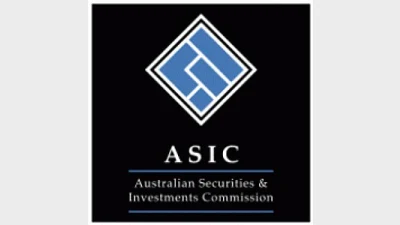ASIC admits it has levy discretion



The Australian Securities and Investments Commission (ASIC) has formally admitted to a Parliamentary committee that it does have discretion over its handling of the so-called ASIC levy.
“ASIC has the discretion to waive levies in exceptional circumstances. ASIC also considers applications to pay levies via a payment plan in cases of financial hardship,” the regulator has told the Parliamentary Joint Committee on Corporations and Financial Services.
In doing so, ASIC effectively shifted from its position that the levy was mechanical and closer to the stated view of the Minister for Superannuation, Financial Services and Digital Economy, Senator Jane Hume.
“ASIC, as an independent regulator, has discretion over the allocation of resources. ASIC’s strategic planning framework is designed to monitor our operating environment, identify threats and behaviours that lead to harm (through our threats, harms and behaviours framework), and prioritise those harms that need to be addressed,” it said.
The regulator also made clear that the additional monies it had expended around pursuing the banks and AMP with respect to matters raised at the Royal Commission into Misconduct in the Bank, Superannuation and Financial Services Industry had actually been budgeted by the Government to be funded by the industry, including via the ASIC levy.
“The increase in 2019/20 levies for the ‘Licensees that provide personal advice on relevant financial products to retail clients’ subsector has largely been due to additional funding that ASIC received in relation to the Royal Commission into Misconduct in the Banking, Superannuation and Financial Services Industry (Royal Commission) and a related increase in ASIC’s costs,” it said.
“The Government increased ASIC’s budget by $404 million over four years in the 2019/20 Budget in response to the Royal Commission findings. The additional funding was provided to ASIC to provide capacity for ASIC to meet the level of regulatory activity expected by the community and Government in response to conduct within the financial services industry.”
“The Government agreed at the time of increasing ASIC’s budget that the additional funding would be recovered under ASIC’s industry funding arrangements. Against this backdrop of additional funding and increase in ASIC costs, the total number of financial advisers decreased 17% from 24,919 in 2018/19 to 21,308 in 2019/20.”
“A combination of an increase in total costs to be recovered, and a decrease in the number of advisers year on year, resulted in the graduated levy component increase from $1,142 in 2018/19 to $2,426 per adviser in the 2019/20.”
“Where ASIC is successful in court, any costs awarded and paid to ASIC will be credited to the relevant subsector(s), with the levy for those subsectors reduced accordingly. There is likely to be a delay between when costs are incurred and when costs are recovered, which means levies for one financial year will include ASIC’s enforcement costs, but with any crediting of costs likely to occur in another financial year.”
Recommended for you
Recommendations by the FSC around implementing a practicing certificate framework for advisers would be burdensome and add little value for AFSLs, according to SIAA.
The RBA has made its latest interest rate decision at the the final monetary policy meeting of 2025.
AZ NGA has acquired Sydney-based advice and wealth management firm Financial Decisions, allowing its CEO to step back and focus on providing advice.
State Street is actively seeking to launch ETFs in the Australian government, corporate and high yield bond space next year in order to capitalise on the phase-out of AT1 hybrids.











